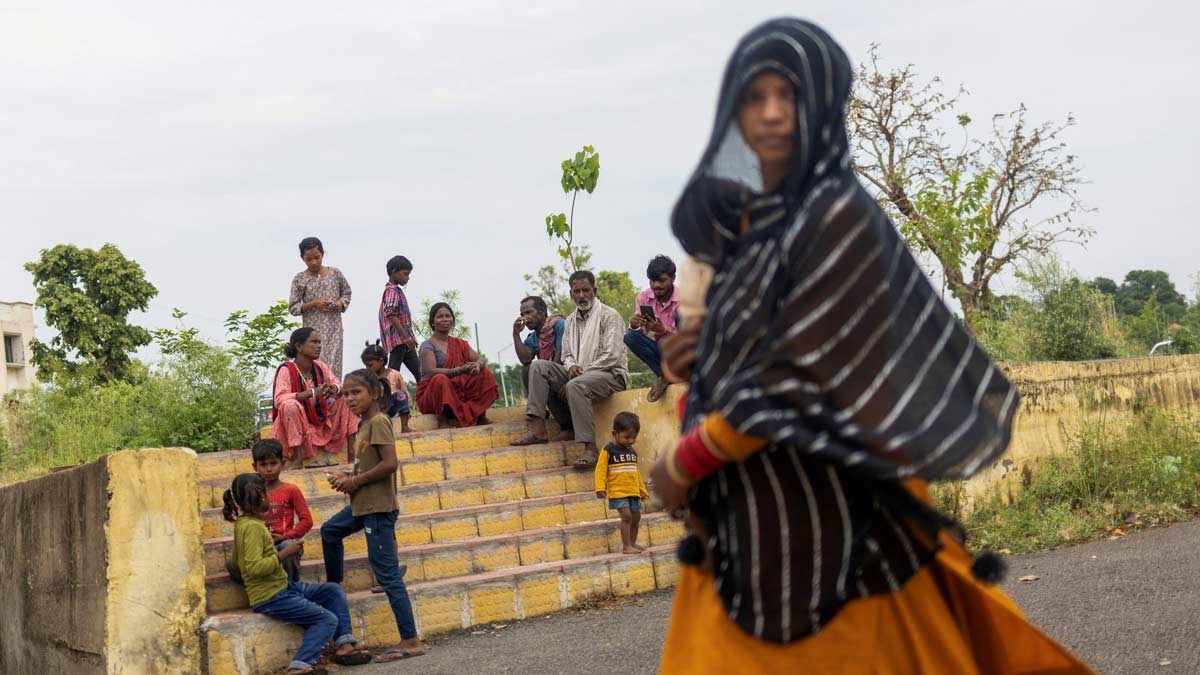Ceasefire offers breather to border residents in J&K after deaths, dsiplacement
 People who were evacuated from an area near the Line of Control (LoC) between India and Pakistan following cross-border shelling sit inside the premises at a college that was turned into a temporary shelter on the outskirts of Jammu | Reuters
People who were evacuated from an area near the Line of Control (LoC) between India and Pakistan following cross-border shelling sit inside the premises at a college that was turned into a temporary shelter on the outskirts of Jammu | Reuters
The announcement of a ceasefire between India and Pakistan has generated hope for the restoration of normalcy among people living along the Line of Control (Loc) and the International Border (IB) in Jammu and Kashmir.
Escalating tensions had displaced hundreds of villagers from the LoC and the IB and left 15 people dead—13 in Poonch, two in Rajouri, including an Additional District Development Commission, Raj Kumar Thappa and one in Uri in Baramulla.
“The shelling by Pakistan this time has been the heaviest in years,” said Waseem Baba, a resident of Karnah tehsil in Kupwara, where multiple villages were severely hit. “We seek peace and hope it lasts. People here have suffered immensely.”
Muhammad Farooq, from Balkote village in Uri—one of the closest habitations to the LoC—said his family had to be shifted to a government-arranged relief camp due to the worsening situation. “I hope they return home soon,” he said
In Srinagar, the sense of anxiety had spread beyond the borders. “The airport was under high alert, and Hajj pilgrims were worried about delays or cancellations,” said Bashir Ahmed, a businessman. “The ceasefire news is welcome as it brings hope for stability.”
Brokered with US diplomatic intervention, the ceasefire has paused a dangerous cycle of retaliation that was spiralling into broader conflict. With the guns falling silent for now, residents along the LoC and IB are beginning to return home, although the trauma and damage of the past week will take much longer to heal.
Tensions had sharply escalated after the April 22 Pahalgam attack in which 26 people, mostly tourists, were killed by militants.
India blamed the Resistance Front (TRF), believed to be a Lashkar-e-Toiba affiliate, and pointed fingers at Pakistan for sheltering the group.
Islamabad denied its involvement and called for an international probe, which India rejected.
In response, Prime Minister Narendra Modi vowed to avenge the killings.
On May 7, the Indian Air Force launched airstrikes on nine locations in Pakistan and Pakistan-occupied Kashmir under "Operation Sindoor," claiming to have destroyed terror infrastructure.
Pakistan retaliated with drone and missile attacks on military installations in Jammu and Kashmir, Punjab, and Rajasthan, triggering further escalation. India hit back by targeting Pakistani military and air force bases.
India